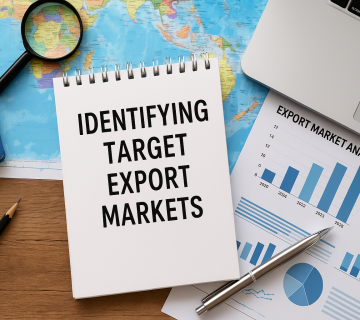In today’s hyper-connected world, success in global trade is no longer just about strategy and relationships; it’s increasingly about the technology you wield. The right digital tools can streamline operations, reduce risks, and unlock efficiencies that were unimaginable a decade ago. For businesses aiming to thrive in the international arena, leveraging cutting-edge technology is not just an advantage—it’s a necessity.
Navigating the complexities of cross-border commerce requires more than just a good product. It demands visibility, agility, and data-driven precision. This article highlights five essential tools that are fundamentally reshaping how businesses operate on a global scale. From automating compliance to simplifying complex logistics, these innovations are indispensable for any modern enterprise looking to succeed.
1. AI-Powered Market Analysis Platforms
What it is: These are advanced software platforms that use Artificial Intelligence (AI) and machine learning to analyze global market data. They go far beyond traditional search engines, identifying trends, forecasting demand, assessing geopolitical risks, and monitoring competitors in real-time.
Why it’s essential: In the past, comprehensive market research was a costly, time-consuming process reserved for large corporations. AI platforms democratize this intelligence. They empower businesses of all sizes to make informed, strategic decisions about which markets to enter, how to price products, and where to find reliable suppliers. This tool transforms raw data into actionable insights, minimizing guesswork and maximizing opportunities.
2. Digital Freight & Logistics Marketplaces
What it is: These are online platforms that connect shippers with a vast network of carriers, freight forwarders, and logistics providers. Much like booking a flight online, these marketplaces allow you to compare quotes, book shipments, and manage logistics digitally and in one place.
Why it’s essential: The traditional process of getting shipping quotes and managing freight is notoriously fragmented and opaque. Digital marketplaces bring transparency and efficiency to the process. They provide instant access to competitive pricing, enable real-time tracking of shipments (from port to final destination), and automate much of the required documentation. This leads to significant cost savings, reduced transit times, and unprecedented visibility over your entire supply chain.
3. Regulatory Technology (RegTech) for Compliance
What it is: RegTech solutions are specialized software designed to help businesses navigate the incredibly complex web of international trade laws, tariffs, and customs regulations. These tools automate the compliance process, ensuring all paperwork and procedures are up-to-date with the latest rules for each specific country.
Why it’s essential: A minor compliance error can lead to major headaches: shipments stuck at customs, hefty fines, and damaged client relationships. RegTech tools act as a digital compliance officer, automatically generating accurate customs declarations, verifying product classifications, and flagging potential regulatory issues before they become problems. This automation is critical for mitigating risk in an environment where trade laws can change overnight.
4. Cross-Border Payment & Fintech Platforms
What it is: These are financial technology (Fintech) platforms that specialize in facilitating international transactions. They offer multi-currency accounts, real-time currency exchange, and secure digital payment gateways that are faster and cheaper than traditional banking systems.
Why it’s essential: Traditional wire transfers are slow, expensive, and lack transparency regarding fees and exchange rates. Modern fintech platforms solve these issues, providing fast, low-cost payment solutions. They also offer sophisticated tools for managing currency risk (hedging), allowing businesses to lock in exchange rates and protect their profit margins from market volatility. This financial agility is crucial for maintaining healthy cash flow and profitability.
5. Virtual Collaboration & Communication Suites
What it is: While not exclusive to trade, advanced collaboration suites (like Microsoft Teams, Slack, and Asana) integrated with real-time translation features are vital tools. They create a centralized hub for communication between your internal teams, international suppliers, and overseas clients.
Why it’s essential: Global trade is built on communication. Misunderstandings caused by language barriers or scattered email chains can lead to costly errors in orders, shipments, and agreements. These platforms break down those barriers. They ensure everyone involved in a transaction is on the same page, with clear records of all conversations and decisions. This enhances project management, strengthens partnerships, and ensures smooth execution across different time zones and cultures.
Conclusion: Equipping Your Business for the Future
The future of global trade belongs to the businesses that are best equipped. The five tools outlined above are more than just software; they are strategic assets that build resilience, efficiency, and intelligence into the core of your international operations. By integrating these solutions, you can automate complexities, reduce uncertainties, and free up your team to focus on what truly matters: growing your global presence.
To learn more about how these tools can be integrated into your specific business strategy, contact the experts at Parsatis Pasha.
Website: parsatispasha.com Email: info@parsatispasha.com




No comment